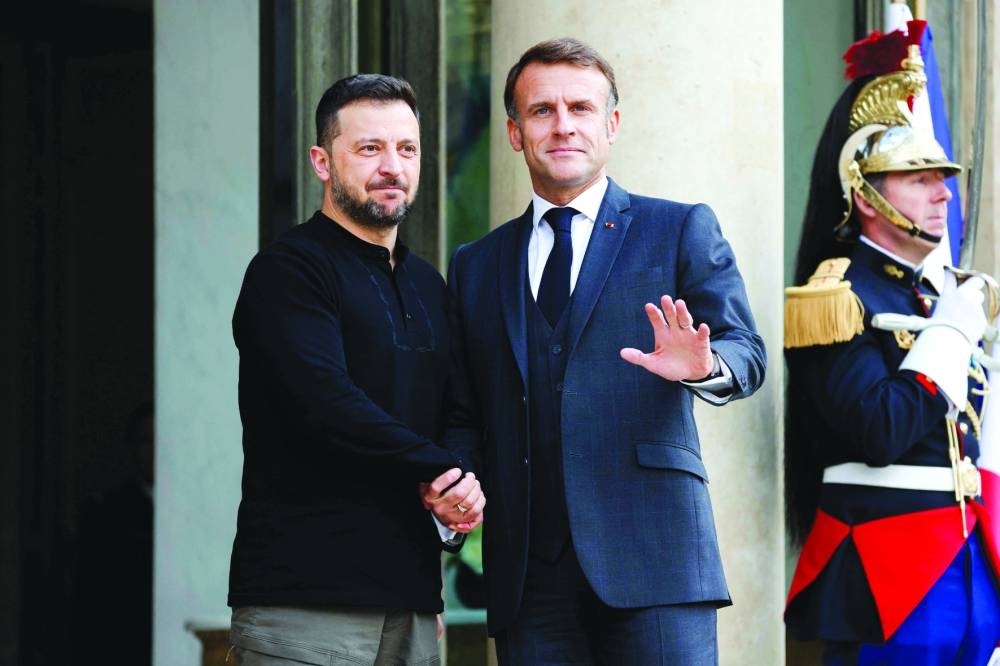President Volodymyr Zelensky discussed yesterday his proposed “victory plan” with Britain and France’s leaders and the incoming head of the North Atlantic Treaty Organisation (Nato) as he seeks to garner military support to put himself in a position for eventual peace talks.
Western officials and Zelensky have said the war with Russia is at a critical point.
With a US election less than a month away and winter set to arrive in Ukraine amid a barrage of Russian strikes on key energy infrastructure, the Ukrainian leader is keen for the West to give further support to try to change the balance on the battlefield.
“The next peace summit has to be in November. The plan will be on the table ... early November the plan will be with all the details,” Zelensky told reporters in Paris when asked about a potential peace conference.
He dismissed any talk of a ceasefire.
He gave no specific details either in London or Paris on the “victory plan”.
Zelensky earlier held talks with Nato chief Mark Rutte and British Prime Minister Keir Starmer.
In addition to the “victory plan” they discussed whether Ukraine could use Western missiles against targets in Russia.
Zelensky has pushed for the United States and Britain to join France in letting it use long-range missiles donated by its allies inside Russian territory, something Rutte said had come up at the meeting.
“We discussed it today, but in the end it is up to the individual allies,” Rutte told reporters in Downing Street after the talks.
Starmer’s spokesperson said there had been no change to the UK government’s position on the use of long-range missiles.
Russia has previously said it would respond if Western countries allowed Ukraine to strike Russia with their missiles.
President Vladimir Putin said last month that such a decision would mean Nato countries were directly fighting with Russia and that “the very essence of this conflict will be changed”.
Unlike Britain and the United States, France has said Ukraine should be allowed to use its SCALP cruise missiles, the French version of Britain’s Storm Shadow, to strike legitimate targets in Russia.
It is unclear whether Ukraine has already done so.
Another ally, Italy, where Zelensky will meet Prime Minister Giorgia Meloni later this week is staunchly against Ukraine using its Storm Shadows to hit Russia.
The meetings yesterday, along with one in Berlin today, were aimed at outlining Ukraine’s position and possibly outlining its requirements for accepting future peace negotiations after a summit in Germany of its main backers was cancelled when US President Joe Biden pulled out to focus on Hurricane Milton.
Zelensky said after the London meeting that he had outlined how to create “the right conditions for a just end to the war” without going into detail.
In Paris, French President Emmanuel Macron sought to show that his country is still fully behind Kyiv in its war against Russia despite political difficulties at home that have raised questions about how much help France will be able to give in the coming months.
Macron said France would keep to its current commitments, which include €3bn ($3.28bn) in support this year.
Paris is training and equipping a brigade of 3,000 Ukrainian troops and plans to send Mirage fighter jets to Ukraine at the beginning of next year.
“It was important to exchange with the president on the coming weeks and months on military and diplomatic work (to come),” Macron said alongside Zelensky.

Macron with Zelensky at the Elysee Palace in Paris. – AFP
